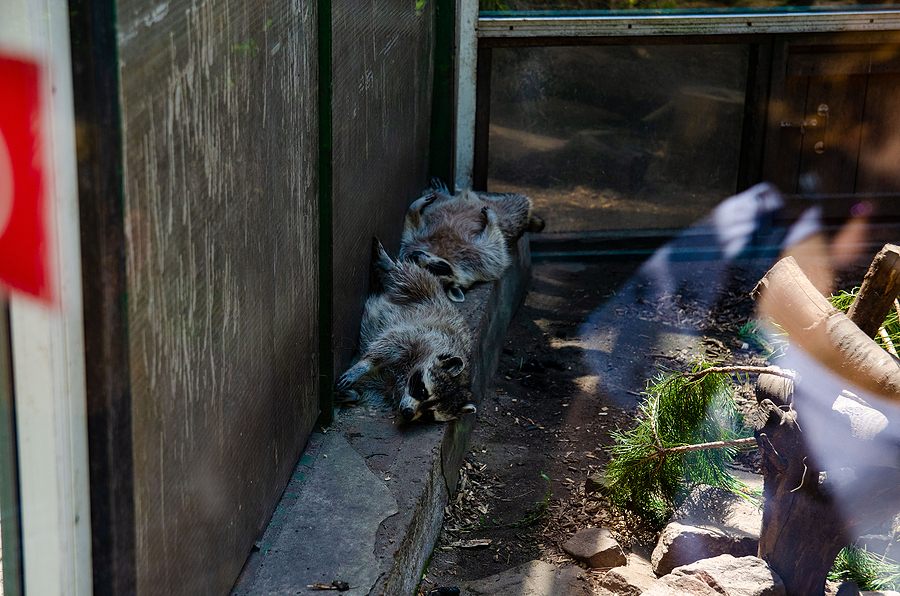Raccoons, with their mischievous masked faces and ringed tails, can often seem charming when viewed from a safe distance. However, anyone who’s dealt with a raccoon problem knows that these critters are anything but cute when they’re ransacking your garbage cans or making a mess in your attic.
Raccoons are ingenious, adaptable, and notoriously difficult to deter. But don’t lose hope just yet. With the right knowledge and tools, raccoon control and removal can become manageable. In this blog post, we’ll share expert tips and proven raccoon deterrents to help you reclaim your space from these night-time nuisances.

Understanding Raccoon Behavior
Before we delve into the specifics of raccoon control, it’s essential to understand their behavior. Raccoons are intelligent and curious animals that are skilled at finding food sources and making themselves at home in residential areas. They’re primarily nocturnal, which means they’re active during the night and sleep during the day.
Raccoons are omnivores, meaning they eat both plants and animals, making them opportunistic feeders. They also have dexterous paws that allow them to manipulate objects and open containers easily. These traits make raccoons a tough match for homeowners trying to keep them away.
Identifying Raccoon Infestations
Raccoons are notorious for causing damage to homes, especially in attics and crawl spaces. They can also create a mess in yards by overturning garbage cans and digging up gardens. To determine if you have a raccoon problem, look for the following signs:
▶ Knocked over trash cans
▶ Damaged bird feeders or pet food containers
▶ Scratching or vocal noises coming from your attic or walls
▶ Disturbed gardens or lawn
▶ Fecal matter in and around your property (round, tubular droppings)
Tips for Raccoon Control
While there is no surefire way to completely eliminate raccoons from your property, the following tips can help make it less appealing for them to stick around:
Secure trash cans: Use locking lids or bungee cords to secure your trash cans. Raccoons are adept at opening lids and can quickly make a mess of your garbage.
Eliminate food sources: Make sure to clean up any fallen birdseed or pet food that may attract raccoons. Keep your outdoor grill clean, and don’t leave pet food outside overnight.
Install motion-activated lights and sprinklers: Raccoons are nocturnal, so bright lights can startle them and make them think twice about entering your property. Motion-activated sprinklers can also be effective in keeping raccoons away.
Seal entry points: Inspect your home for any potential entry points, such as loose shingles or holes in the roof or walls. Seal these openings with sturdy materials, such as metal or heavy-duty mesh.
Use repellents: There are several commercially available raccoon deterrents, such as predator urine or ammonia-soaked rags, that claim to repel raccoons. However, results may vary, and these methods may be more effective as a supplement to other control measures.
When to Call a Professional
If you’re dealing with a persistent raccoon problem, it may be time to call a professional wildlife control service. They have the expertise and equipment to safely remove raccoons from your property and prevent future infestations. In some cases, they may also offer exclusion services, where they seal off potential entry points to keep raccoons out.
Conclusion
With these expert tips and knowledge of raccoon behavior, you can take proactive measures to deter these pesky critters from causing havoc in your home and yard. Remember to always prioritize safety and never attempt to handle raccoons on your own. With patience and persistence, you can successfully control and remove raccoons from your property for good.
If you have questions about raccoon control and removal, contact one of our Indianapolis wildlife control professionals for assistance. We provide effective raccoon removal and control services for residential and commercial properties throughout central Indiana. With the right approach, you can keep raccoons away from your home for good!
Related Posts:
How to Determine if You Have an Infestation of Raccoons in Your Home
The Dangers of Trying to Remove Raccoons Yourself
General Process of Raccoon Infestation Clean-Up and Repair
